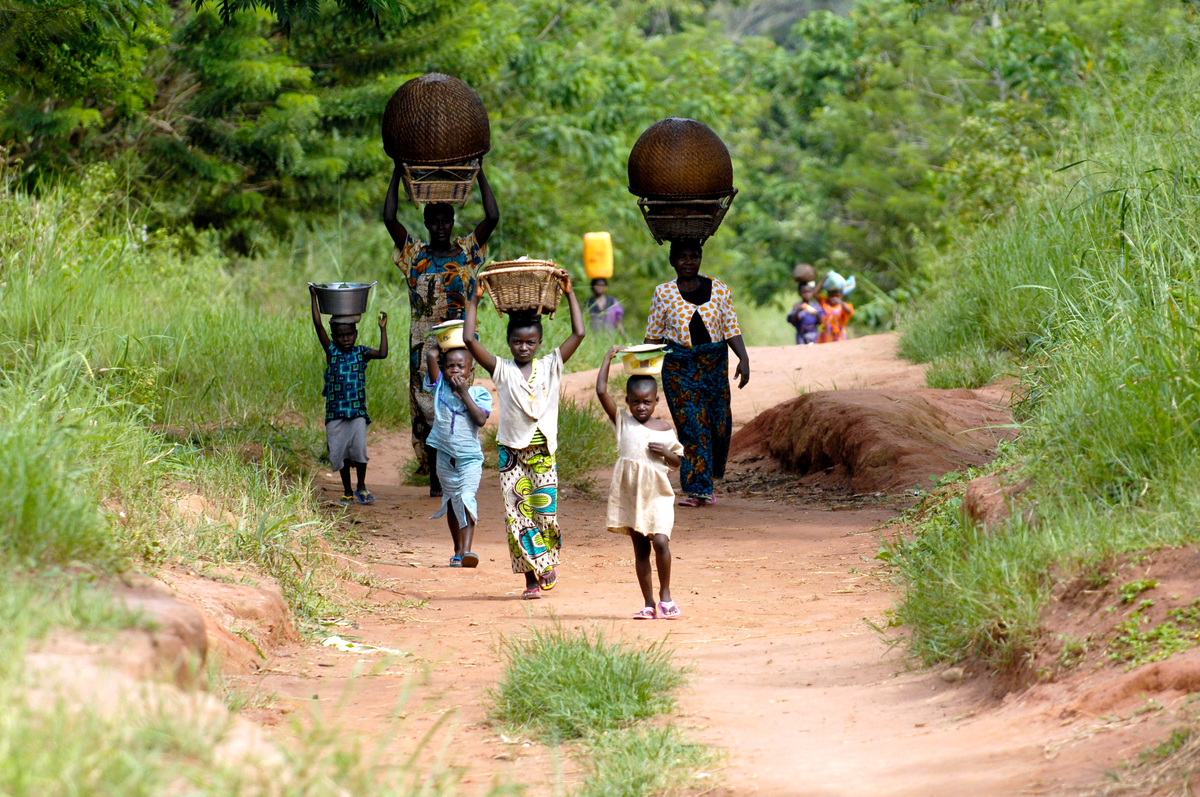
Local women and children on a road coming from a water hole.
As a member of the Forest Stewardship Council (FSC) in Switzerland, as well as a Greenpeace campaigner focused on doing everything I can to protect our planet’s last untouched forests, I am alarmed that FSC has already decided to allow Swiss-German timber group, Danzer, back into its system.
‘Disassociation’ is one of the strongest measures FSC can take against companies that engage in unacceptable practices, and we welcomed FSC taking such action against Danzer in May 2013. Danzer’s former subsidiary, Siforco, had been found to be involved in human rights violations in the DRC.
The process for FSC to ‘re-associate’ a company should be rigorous and transparent, and allow time to implement improved practices to ensure no repeat of the unacceptable activities. FSC set out the conditions for Danzer’s re-association in a Memorandum of Understanding.
The process got off to a bad start when Danzer was found to have already violated one of the conditions even before the MoU was signed. The negotiations between the company and communities had not benefited from independent mediation, a crucial factor in the often one-sided relationship between industrial logging companies and local communities. Also, after the disassociation decision, the International Technical Tropical Timber Association (ATIBT), the stakeholder representing industry’ interests, started to agitate and circulate documents of questionable origin that were supposed to prove that the severe human rights violations, on which the disassociation decision was mainly based, had never taken place.
Forest Peoples Programme (FPP) verified the re-association process and reported that progress has been made on the ground in terms of fulfilling the original social contract with the communities. We are pleased that the Policy for Association (PfA) process has finally led to tangible benefits for communities such as health centres and school buildings. However, we are very worried that what we believe to be FPP’s most important recommendation was not followed.
FPP’s recommendation was that Danzer should only be able to buy from Siforco after it had committed to Free Prior and Informed Consent (FPIC). The lack of FPIC and its implementation is seen as a major cause of the land and resource conflicts that are daily practice in the Congo Basin. Danzer has continued to buy timber from Siforco and will continue to do so with no FPIC safeguards in place to prevent a recurrence of the conflicts and resulting violence that led to Danzer’s May 2013 disassociation.
We strongly disagree with Danzer’s re-association as it is far too soon to properly determine if the agreed improvements needed to prevent further human rights violations have been completed. A conflict manual is in place, but it remains to be seen if and how it will be implemented.
It is obvious that FSC has become big business and corporations such as the Danzer group simply cannot do business without it anymore, as major corporate clients need to comply with their supply policies based on FSC. This is why the pressure on FSC is high.
FSC and its Certification Bodies need to heed the strong call from FPP to improve standards and auditing. FSC has been found to not be upholding important social criteria such as FPIC in the Congo Basin. Greenpeace has been calling for Safeguards in High-Risk areas that are rife with corruption and lack of governance to prevent controversial certifications and to maintain the standard in challenging environments.
FSC needs to finally come up with strong proposals on High Risk areas for the membership gathering at the General Assembly in September. I need FSC to improve and regain the balance between economic, environmental and social issues instead of putting business interests first, as it has clearly done with Danzer.
Asti Roesle is a Senior Campaigner at Greenpeace Switzerland.
